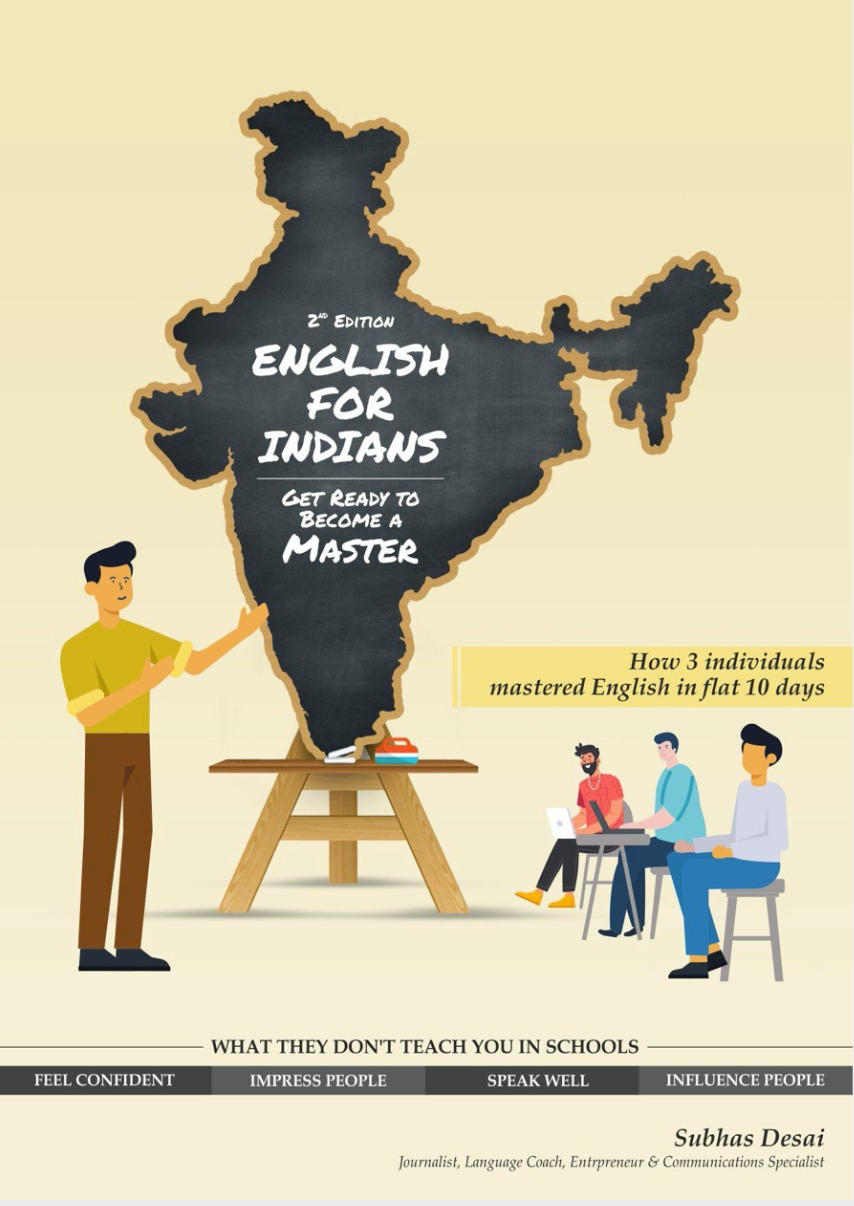The aim of this book is to help you understand the mechanics of writing and speaking well in English in flat 10 days. The chapters in this book have been divided in a way that you would naturally understand the sequence, making it easy to grasp and at the same time have fun. Very few English teachers know this technique of aligning the lessons with the thought process of students.
When you are in school or college, your English teacher took pains to make you understand so many rules of grammar that it is impossible to apply them consciously in a day to day situations. You don’t have to learn 100 grammar rules. Once you know some three or four rules, English will become entertaining for you.
The first step in learning English is not noun or pronoun or adjective or adverbs or verbs. That’s the wrong way of learning English grammar. So, what is the first step to learn English grammar? The subject of a sentence. The subject is a hero of a sentence because it is about this hero you talk about in the sentence. Every hero needs to perform some action. This action is called verb. Identifying the real verb and matching with the subject is the start of a journey towards becoming a master.

Subhash Desai worked as an Associate Editor in Silicon India, a US-based magazine focused on technology trends and entrepreneurship. Besides being a writer and editor, he has been a language coach. He was a part-time faculty at the then Andhra Pradesh High Court and trained thousands of students in English proficiency.
Besides being a journalist, he is a communications and marketing expert having worked with companies like Tech Mahindra as Head of Capability Marketing & Communications; SAP India as a Communications Specialist directly reporting to the CEO of SAP India; Satyam Computers Services as Communications Head.
With more than 22 years of experience in journalism and corporate communications, Subhash is an avid reader and is passionate about training and coaching people in the English language.

Before I set out to write this book, I researched almost all the prominent books available in the market, and I found that not even one revealed the techniques and methods that are essential to sentence formation. I made every effort to unravel the mysteries of the English language that so far have been the forte of writers.
I have always asked these two questions to myself:
I worked as a journalist for over a decade before switching to corporate and marketing communications. During my journalism days, I used to write sentences without fully knowing where to put a full stop and a comma. It was not until I took up a job as a trainee subeditor in Andhra Pradesh Times, I learnt the mechanics of forming sentences.
I claim the methods in my book are self-developed, and I hope this book will help you master the fundamentals of the English language.
Any suggestion or criticism is welcomed! Send your reviews to subdesai@gmail.com
I like the way it is written. I have read several books, but seldom come across the one that is presented in such a lucid fashion. If you read this book, one thing I can guarantee is that you will never make basic mistakes either in writing or speaking. Well done, Subhash sir.
I have read so many books on English grammar, but this is very different and easy to comprehend. This book is specifically for those who know how to write but are not confident of grammatical syntax. I agree with the author that the most important part of a sentence is identifying a subject and its verb. What I liked most about this book is that the author has given some good techniques to identify a subject and verb.
The book is written in a very simple and easy to understand language in a novel style. I read this book like a novel and at the same time learnt so many techniques about forming a sentence. Now, I know why a sentence is incorrect. Earlier I was just writing a sentence without realizing whether it is correct or not. Thanks to Mr. Desai for coming up with this beautiful book.
I am Ashokkumar from Andhra Pradesh, I have read the book English for Indians , I have bought this book from online, it is very excellent book, like a novel very interesting, the communication skills without any hesitation, the three persons have learnt within 10 days is excellent, Alok sir techniques of grammar is simply superb, very useful and simple to learn, I have read so many books about grammar, but it is different, I have suggested the book to my friend, he asked me weather it is available in book store, finally English for Indians is very valuable and useful, if you have any books like this please suggest...... Thank you very much..